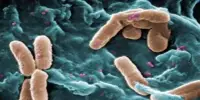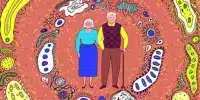Dyslexia is a neurodevelopmental disorder characterized by reading, spelling, and language processing difficulties. While the precise causes of dyslexia are unknown, research indicates that both genetic and environmental factors play a role in its development.
For the first time, scientists have identified a large number of genes that are consistently linked to dyslexia. A third of the 42 identified genetic variants have previously been linked to general cognitive ability and educational attainment. According to the researchers, their findings help us understand the biology behind why some children struggle to read or spell.
For the first time, scientists have identified a large number of genes that are consistently linked to dyslexia. A third of the 42 identified genetic variants have previously been linked to general cognitive ability and educational attainment.
The findings, which were published in the journal Nature Genetics, are said to help us understand the biology behind why some children struggle to read or spell. Dyslexia is known to run in families, thanks in part to genetic factors, but until now, little was known about the specific genes associated with the risk of developing it.
Our findings show that common genetic differences have very similar effects in boys and girls, and that there is a genetic link between dyslexia and ambidexterity. Previous research suggested that some brain structures in people with dyslexia may be altered, but we found no evidence that genes explain this.
Dr. Luciano
The University of Edinburgh is leading the largest genetic study of dyslexia to date. Previous studies linking dyslexia to specific genes were conducted on a small number of families, and the evidence was unclear, according to the research team. This most recent study included over 50,000 adults who had been diagnosed with dyslexia and over one million adults who had not.
Researchers examined the relationship between millions of genetic variants and dyslexia status and discovered 42 significant variants. Some of these are linked to other neurodevelopmental conditions, such as language delay, as well as cognitive abilities, and academic achievement. Many, on the other hand, are novel and may represent genes that are specifically associated with processes required for learning to read.
Many of the genes linked to dyslexia have also been linked to attention deficit hyperactivity disorder. For psychiatric, lifestyle, and health conditions, there was much less overlap of the genes associated with dyslexia. Several of the associated genetic variants were also significant in a Chinese-speaking sample, indicating that there are general cognitive processes in learning to read that are not language dependent.

Using the genetic information from the study, researchers claim they were able to predict how well children and adults from four other research studies could read and spell, but not with the accuracy required for diagnostic use. Other key researchers in the study came from the Netherlands’ Max Planck Institute for Psycholinguistics, Australia’s QIMR Berghofer Medical Research Institute, and the US company 23andMe, Inc.
The study, according to lead researcher Michelle Luciano of the University of Edinburgh’s School of Philosophy, Psychology, and Language Sciences, sheds light on many unanswered questions about dyslexia.
“Our findings show that common genetic differences have very similar effects in boys and girls, and that there is a genetic link between dyslexia and ambidexterity,” Dr Luciano explains. “Previous research suggested that some brain structures in people with dyslexia may be altered, but we found no evidence that genes explain this.”
“Our results also suggest that dyslexia is very closely genetically related to performance on reading and spelling tests, reinforcing the importance of standardized testing in identifying dyslexia.”
















